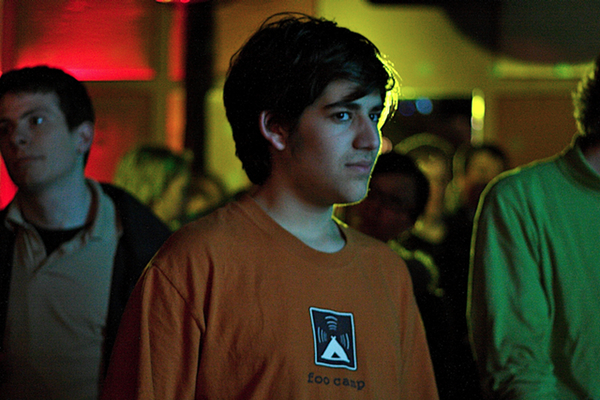 This photograph by Buzz Andersen has been haunting me for the last hour. It’s Aaron Swartz, seen at the first Creative Commons Salon in 2006. And over the weekend we heard news that Swartz is now dead, aged just 26, from an apparent suicide.
This photograph by Buzz Andersen has been haunting me for the last hour. It’s Aaron Swartz, seen at the first Creative Commons Salon in 2006. And over the weekend we heard news that Swartz is now dead, aged just 26, from an apparent suicide.
My challenge for today is writing something about the meaning of this bold and bright young man’s life and death. Something new to add to the whirlpool of words that has been devouring the internet from its geekier nether regions all the way to the mainstream press.
This is why, despite my expressed intention to write more last night about my slowly-evolving plans for 2013, I wrote no such thing. Having slept on it, though, I have an answer to both problems.
The core of so much of my writing in the past couple of years has been about changing power relationships. I spoke about this in my speech at Consilium and the introduction to episode 150 of the Patch Monday podcast. Here’s yet another version.
Knowledge is power. So if new technology changes the way we deal with information and knowledge, then it changes the power relationships in society. And given that we’re changing the information flows at every level of society, we’re seeing changing power relationships at every level too.
At every level.
The ability to go online and compare prices on overseas websites with what’s available in local bricks and mortar stores changes the power relationship between retailer and customer — and traditional retailers don’t like it.
Criminal malware toolkits like Blackhole change the power relationships between the bad guys and their victims. Online crime is transnational, and that changes the power relationships between criminals and police.
The ability to log and data-mine all sorts of details about our lives changes the power relationships between the police and us citizens.
And the ability for us citizens to organize ourselves, and share information, changes the power relationships between citizens and governments. In western countries like here in Australia, or the United States, or Europe, we officially approve of that when its used against despotic regimes like Syria, or against an official enemy like Iran, but not so much when it’s Anonymous versus our own governments.
So as the 2013 working year gets under way for me today, it’s that focus on power relationships that is likely to inform much of what I write and talk about — tempered by the need to offer editors material that they know people will want to read, and the need to satisfy my inability to take anything too seriously.
It’ll certainly inform what I’m about to write about Aaron Swartz. Somehow.
To some Swartz was a freedom fighter. To others, most notably his own government, he was a criminal. Personally, I’m ambivalent. I recognise his intelligence, but respect only part of what he accomplished. I’ve already had an ugly public stoush with one of his fans. It’s going to be a challenge.
I have a little over three hours before deadline. Stand by.
[Update 1953 AEDT: The resulting article, published by Crikey at lunchtime, was Aaron Swartz: a martyr for info-freedom fighters? I’ll have more to say about this issue, I think. Stay tuned.]
[Photo: Boy Genius: Aaron Swartz at the Creative Commons Salon, 9 March 2006, by Buzz Andersen. Used under a Creative Commons BY-NC license.]

A very sad loss the World, Aaron will be missed by all!